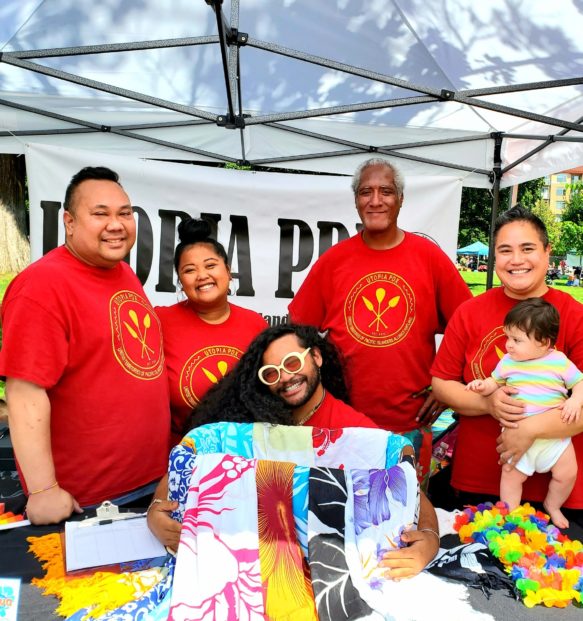“In Samoa, oral tradition and storytelling is the fabric of our culture. Before colonization, we passed down our history through song, oration, and acknowledgements from generation to generation,” explains Manumalo Ala’ilima, co-chair of United Territories of Paci c Islanders Alliance Portland (UTOPIA PDX), an all-volunteer organization that provides sacred spaces for Queer and Trans Paci c Islanders (QTPIs).
UTOPIA PDX, a Pride Foundation grantee, hosts a storytelling series called ‘Talanoa’, which from Samoan loosely translates as ‘our word is our bond.’ These events are an opportunity for QTPIs to share their stories and perspectives related to timely issues, and publicly lift up voices that are often excluded from the narrative of what it means to be LGBTQ+.
The Talanoa series and other similar storytelling approaches from Indigenous organizations are culturally-rooted models to building a richer understanding of LGBTQ+ communities.
In all movements that work to build public support and understanding, determining what stories are told, how they are told, and who tells them is critical to making real change.
“When we’re facing harmful legislation, there is incredible pressure to find messaging quickly that will most effectively sway the general public and combat the narratives being used against us,” explains Isyss Agaiotupu Honnen, Project Director of Pride Foundation’s public education and policy advocacy program, TRANSform Washington.
“When we are not in the midst of a legislative attack, we have the opportunity to broaden public understanding of the full diversity and lived experiences of LGBTQ+ communities.”
Working in partnership with Transgender Law Center and a network of trans and gender diverse people and organizations from across the country, we are working to do just that.
Together, we are asking: What if public education efforts in response to legislative attacks mirrored the diverse perspectives of UTOPIA PDX’s Talanoa series? And what if those most impacted by injustice were the ones to develop the messaging tools and strategies to drive our movements for justice forward?
“There are critical messaging ideas within our own communities that we can use to build out grassroots organizing strategies based in storytelling,” Isyss affirms.
With generous support from a national funder, we are researching messaging strategies to find ways to build public understanding and empathy for non-binary people—and ensuring it is community-driven and infused with Indigenous values every step of the way.
Alongside these community partners, we are creating storytelling and messaging toolkits that will be shared with grassroots organizations across the region and country that they can then tailor to their own communities and use in their work to shift hearts and minds.
Integral to this work is continuing to support and nurture the grassroots storytelling efforts of indigenous groups like UTOPIA PDX. Together, we know we can build empathy through authentic storytelling—and genuinely shift understanding and acceptance of the breadth of people in our communities.
Learn more about UTOPIA PDX at facebook.com/utopiaportland.
